
独立媒体,非营利性质,我们关注环境、教育、性/别、精神健康等公共议题,提供负责的纪实性内容。欢迎在这些平台关注我们:https://linktr.ee/ngocn Email: ngocn2020edit@protonmail.com
Epidemic Prevention in China 01 | Ruili's "Excision" and Closure: A Small Town of Floating Ethnic Integration and the Dilemma of "Defending the Land and Clearing Zero" to Fight the Epidemic
Author / Xiaochong Editor / Zhong Shi Drawing / Three Milks (Original published on December 24, 2021)
In Ruili before the epidemic, 30,000 people traveled across the border between China and Myanmar every day. In the early morning, there was a long queue across the border. After closing the stall in the evening, cross the border and go home for dinner.
"Ruili is like a dead city now, and Jiejiao (free trade zone) has no one, only stray dogs." A Ruili resident said.
In the 262 days since the end of March, Ruili has experienced 4 rounds of city closures and 67 days of home isolation in the city. A total of 248 local confirmed cases and 93 asymptomatic infections have been found. Although the cumulative number of confirmed cases in Ruili is less than that in Manzhouli in Inner Mongolia, Dalian in Liaoning, Putian in Fujian and other places, these cities all increased at a rate of dozens of cases per day during the outbreak, and were quickly controlled in about a month. The difference is that in Ruili, there have been single-digit cases uninterrupted for half a year, continuously and repeatedly eroding people's lives.
Located on the border of Yunnan and built on the basis of Sino-Myanmar border trade, this small town has an annual import and export volume of 85 billion yuan and is called "Little Hong Kong" by the locals. However, during the long-term epidemic, the residents of the border villages (that is, the villages adjacent to the national border) were forcibly relocated, the people in the free trade zone went to empty buildings, the main urban area was quarantined at home for a long time, the businesses were closed, and the streets were empty.
Scholars commented that Ruili is a diverse and inclusive "cosmopolitan" city. However, the epidemic not only depressed the economy, but also severed the ties between people, families and families, and ethnic groups.
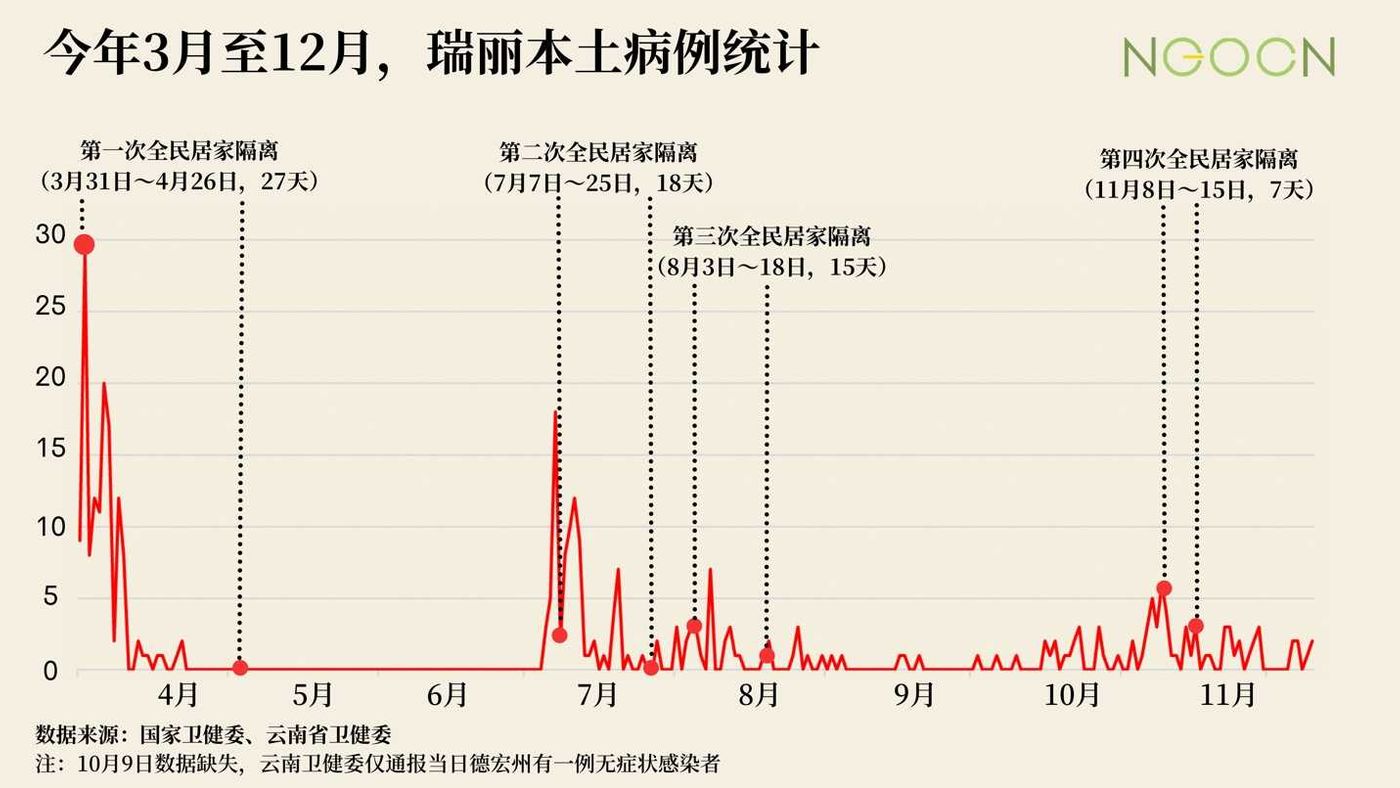
Bian Yanmei (pseudonym), an overseas Chinese from Myanmar who has been in Ruili for 11 years, witnessed the Burmese ethnic group who have been hit hard by the epidemic and epidemic prevention. She lives in the village of Dabian, and the Burmese residents of the entire village were forcibly repatriated. Fortunately, she only stayed after she issued a marriage certificate. When Ruili was unblocked in May, the family gave their one-and-a-half-year-old daughter to her mother-in-law who lived in Baoshan, 200 kilometers away. Later, Ruili closed the city again, and she hadn't seen her daughter for half a year.
Except for Bian Yanmei, the epidemic and epidemic prevention have hit everyone in Ruili in different ways. The anti-epidemic personnel threatened the public with handcuffs, and they would be detained if they did not go to centralized isolation. They also smashed the security doors of residents. The isolation environment in the prefab house is also not optimistic, the tap water is turbid, and there is no hot water for bathing. In Wanding Town, 20 kilometers away from Ruili City, the local government forced hundreds of households to relocate, citing the war in northern Myanmar and the importation of the epidemic.
On October 26, a man committed suicide by jumping off a building in a hotel, but related photos and screenshots quickly disappeared from the Internet. Two days later, the Ruili Propaganda Department confirmed the suicide, but denied it was related to the epidemic, saying the man was not a quarantined person. The statement aroused more questions from the local people. Several interviewees told NGOCN that the suicide incident was the epitome of the emotions of the people in Ruili: closed, depressed, depressed, full of resentment against the harsh and even brutal epidemic prevention, but all voices were heard. stay home.
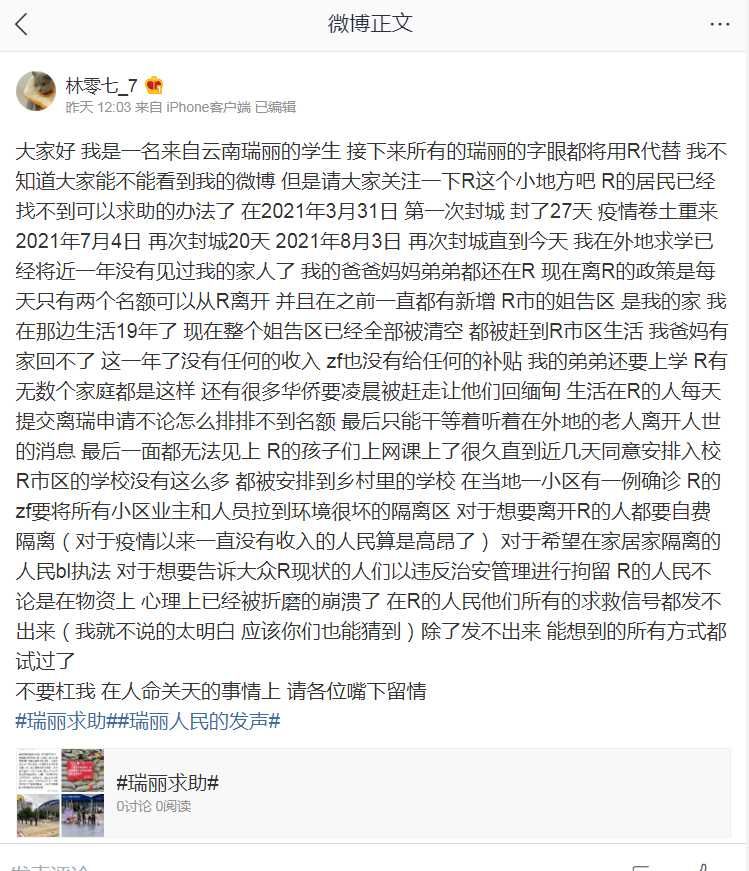
Behind this is the nationwide "one-size-fits-all" policy of "clearing zero", but it has a fundamental contradiction with the "fluid, open and inclusive" characteristics of Ruili as a city. Wang Fang (pseudonym), an ethnologist from a university in Yunnan, believes that the concept of "border" in Ruili's geography and culture is blurred, and border trade and cross-border life are integrated into daily life. Zero" has objective difficulties.
Professor Huang Yanzhong, director of the Global Public Health Program of Seton University in the United States, believes that when "zeroing" cannot be achieved, under the political pressure of the country, local governments can only use more stringent means to prevent the epidemic, which will inevitably lead to overweight and rude execution at the grassroots level. and other issues, and even a policy of forcibly repatriating Myanmar residents.
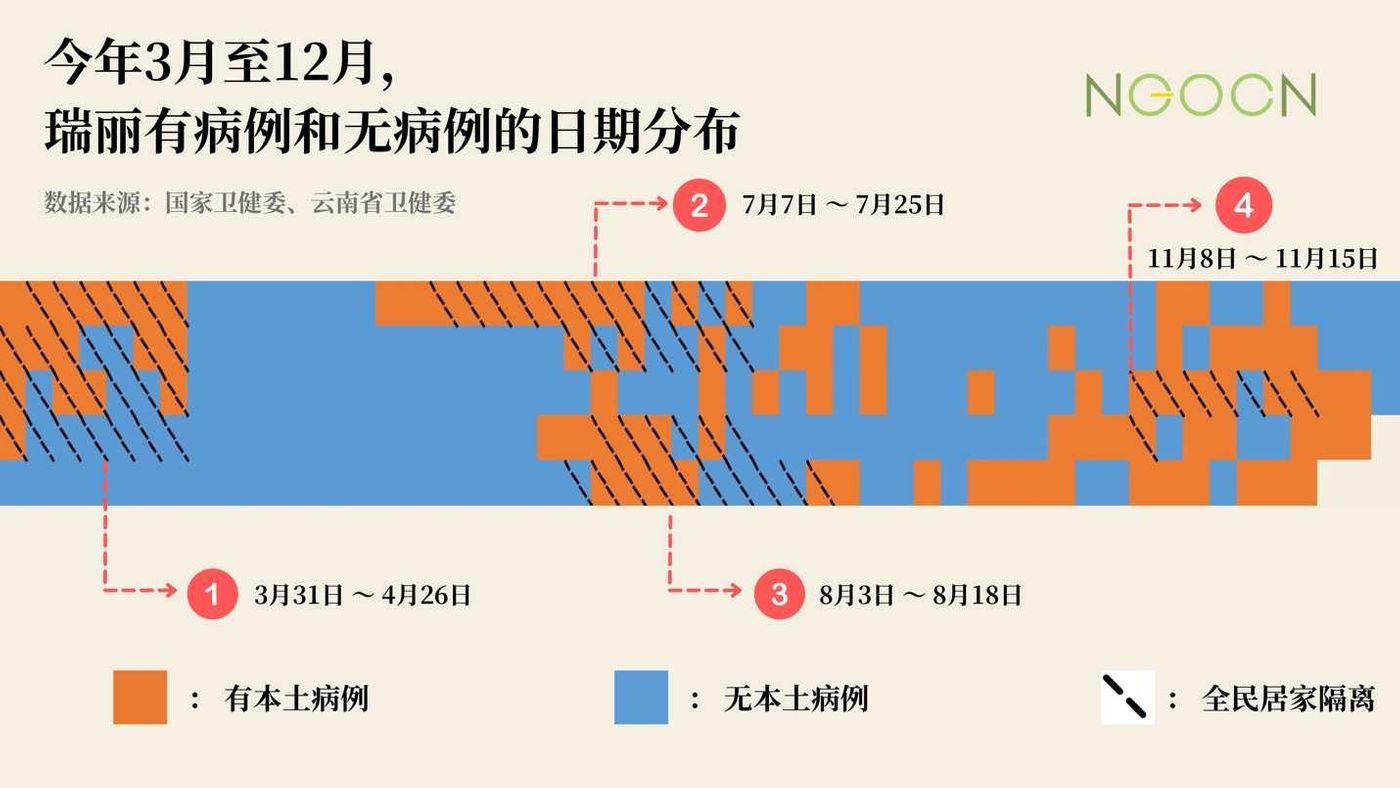
Two days after the suicide incident, Dai Rongli, the former deputy mayor of Ruili, rushed to the hot search for "Ruili Needs the Care of the Motherland" , breaking the double island trapped in reality and the Internet. He wrote, "The long-term closure of the city has formed a dead end for the city's development, and it is very urgent to restore production and necessary operations." He called for "save this heroic city."
After being pushed to the center of public opinion, the local government shouted the slogan of "fighting the epidemic and protecting people's livelihood" , emphasizing "serious implementation" of the "six stability and six guarantees" work for low-income groups released three months ago, and introduced New "eight measures" for people's livelihood security were issued, more than 130 million yuan in relief subsidies were issued, and Ruili was "semi-unblocked", allowing people to choose self-funded hotels or free prefabricated houses to isolate and leave Ruili.
However, Bian Yanmei did not receive any government subsidies, "because I am not Chinese," she said. After a large number of residents with spending power left, she made less income from hairdressing. Without an official marriage certificate, she was unable to leave Ruili to see her daughter.
On November 23, Xinhua News Agency published "Border Town Examination - Documentary of Ruili's Battle Against the "Epidemic" in Yunnan, saying that Ruili had regained its "long-lost vigor and vitality", and concluded that "the epidemic will eventually pass, and the sun will rise as usual".
"But my life didn't get better". Bian Yanmei said.

repatriation
When the epidemic prevention workers knocked on the door, Bian Yanmei did not know that she might be deported back to Myanmar. She lives in the village of Dabian. She walks through a 200-meter ridge, and crosses the 20-meter-wide Ruili River. On the other side is Myanmar.
Bian Yanmei has 10 brothers and sisters, and she is the ninth oldest. Everyone calls her Jiumei. At the age of 17, in order to support her younger siblings to study, she only went to primary school and came to Ruili to work.
In 2010, Bian Yanmei didn't know anyone at the time. She was timid and didn't dare to ask for jobs. She didn't have anything to eat or live in. She was anxious, and she bit the bullet and asked the restaurant she passed by if it was hiring waiters and found her first job. , 400 yuan a month. After that, I went to several jobs, worked as a lingerie salesperson and a hairdresser. Later, she married a Chinese and gave birth to a daughter with big eyes.
Ruili is surrounded on three sides by Kachin and Shan states in Myanmar, like a puzzle piece embedded in southwestern Yunnan into northern Myanmar. The city's area is only one-twentieth of Beijing's, but it is the largest trade port on the China-Myanmar border. Nearly 20% of the 210,000 permanent residents are border residents and businessmen of Myanmar nationality. More than ten ethnic groups, including the Dai, Jingpo, and De'ang peoples of China, as well as the Han and overseas Chinese, Burmese, and Rohingya people of Myanmar, gather here.
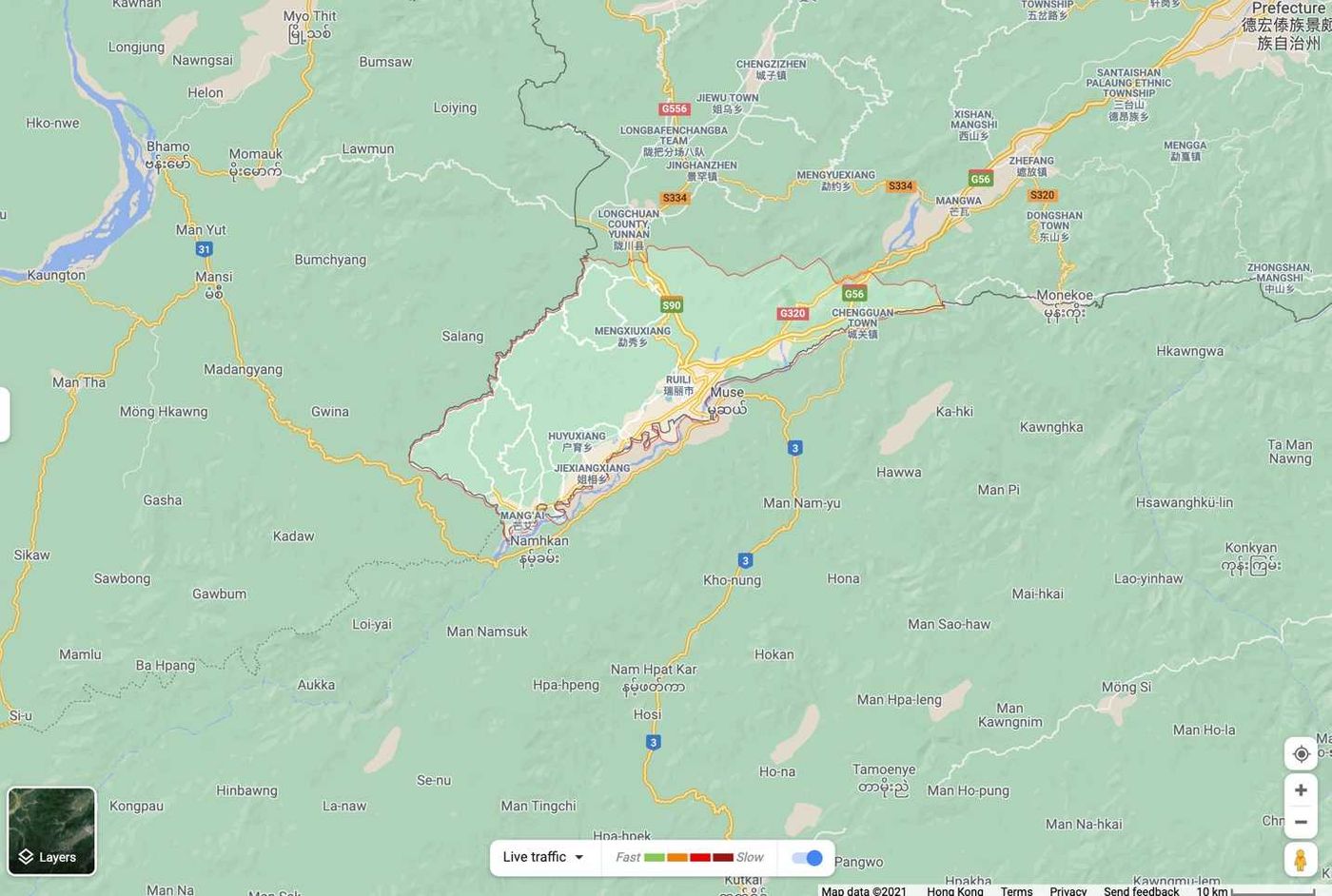
One day in July, the grid worker (community epidemic prevention staff, responsible for grass-roots epidemic prevention management and information collection) came to register her temporary residence permit, saying that to repatriate the Burmese personnel, she needed to sign the consent form.
"Although I don't have a Chinese ID card, I have lived in Ruili for more than ten years, got married and had children, and I feel like I am a Chinese." Bian Yanmei didn't understand why the government wanted to drive them away. She was aggrieved and frightened at the time. She found out that she had a marriage certificate to stay, but she could not apply for it because she was an overseas Chinese in Myanmar without a Myanmar passport, so she asked someone to issue a marriage certificate, so she was not deported.
NGOCN has combed through all the policies, notices and announcements issued by Ruili City since the first round of the epidemic on March 29, and found no information related to "repatriation of Myanmar residents". Until July 26, a video widely circulated on the Internet showed that three government workers were in front of the Jiegao Guomen Community Party and Mass Service Center, informing grassroots epidemic prevention personnel to "mobilize" to repatriate Myanmar residents.
"The whole city will not be able to resume work and production. Even after the lockdown is lifted, the semi-closed management of the elder sister's lawsuit will still be carried out," said a government worker surnamed Yang, holding a microphone. "The lives of these stranded people will become more and more difficult. , the situation of epidemic prevention and control is also relatively tight, so everyone went back to each grid to do mobilization work.”
"Starting tomorrow, from 9:30 to 1:30 every day, Burmese people can return to Myanmar regularly with a valid nucleic acid test certificate, any version of the entry-exit pass, and carrying living materials," the staff member said.
Another staff member added: "If the elder sister's lawsuit is closed again, the Chinese can't stand it, let alone the Burmese."
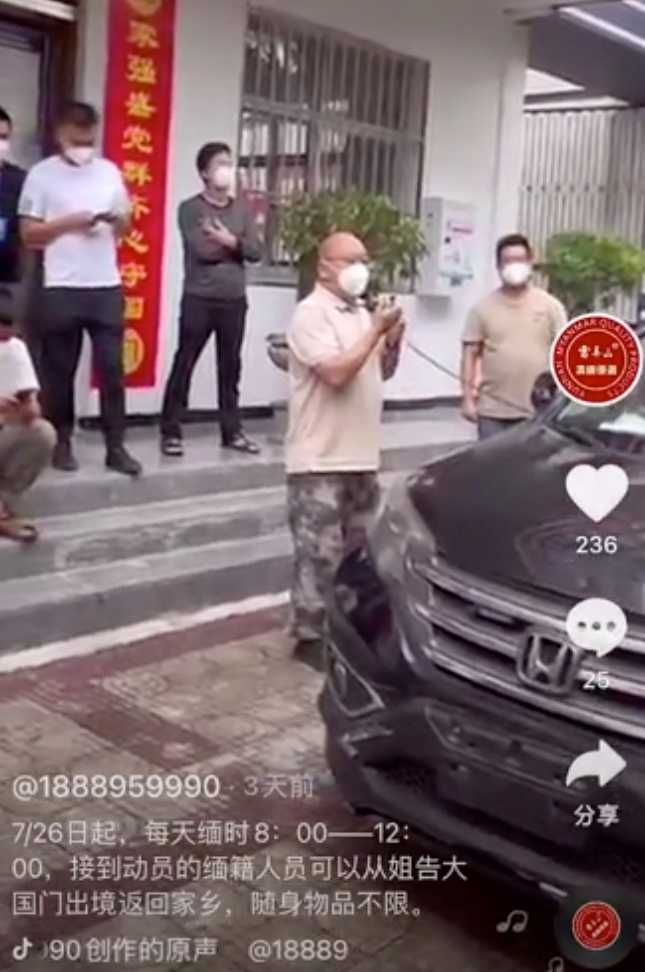
The Jiegao mentioned by the staff is the only village in Ruili City on the other side of the Ruili River. It is like a corner arched into the territory of Myanmar and is connected to the "inland" through the Jiegao Bridge. The unique geographical location makes it a national-level free trade zone, and Burmese people who come to Ruili to do business and work also live here.
According to official data , after the outbreak of the epidemic in 2020, many Myanmar nationals stayed here, and one-third of the 15,000 permanent residents reported by Jiegao are foreigners. In the two rounds of "3.29" and "7.04" epidemics in Ruili, the first cases were found in Jiegao, which is also the area where Ruili was the latest to be released from isolation.
Several Burmese residents living in Ruili told NGOCN that not only in Jiegao, but also Burmese residents in Ruili's urban area, townships, and Dabian villages were notified by grid personnel to be repatriated. According to videos taken by local residents, hundreds of people dragged suitcases, carried woven bags, led children, left in long queues, or carried large bags and small bags on the bus, all heading to the border.
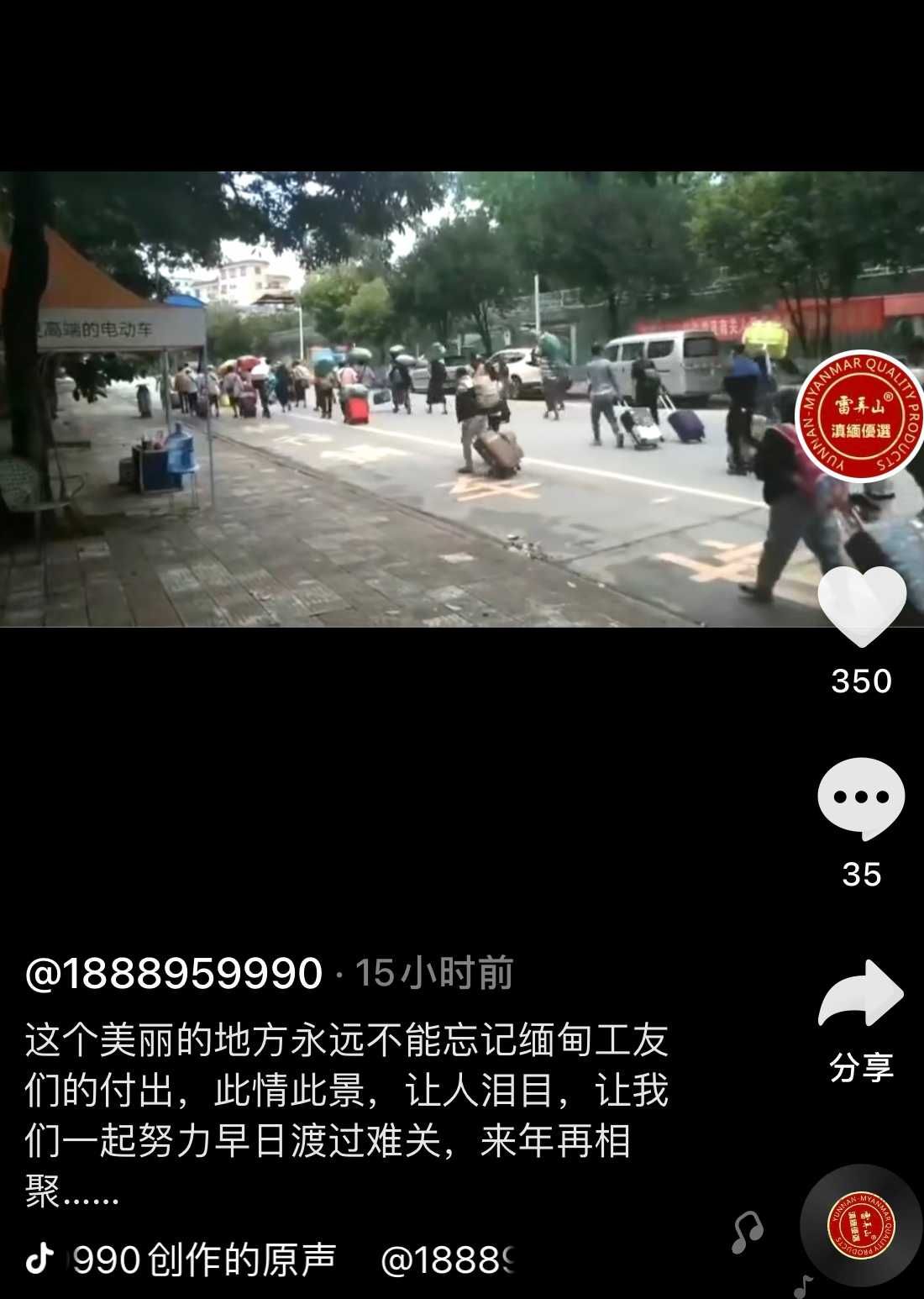
Locals have different opinions on what kind of documents Myanmar nationals can stay. Based on the statements of many interviewees, holding a Paukphaw card, a border pass, a Myanmar passport, plus one of the Ruili real estate certificate, business license, and marriage certificate, you can stay in Switzerland; , especially the "three non-persons" (illegal entry, illegal residence, illegal employment), will be repatriated.
NGOCN was unable to verify specific criteria for repatriation of Myanmar residents through official channels. However, the above statement does not match what Bian Yanmei actually saw.
She said that in the village where she lives, all Burmese residents "are deported whether they are married or not, working or not." Most of them are small traders, temporary workers, and nannies who do border trade, and they do not have "work certificates." Only a small number of people like Bian Yanmei who have a formal job, married a Chinese and issued a marriage certificate, were not deported.
In the village of Dabian, where Bian Yanmei lives, the Burmese and the Chinese are very close, and they will greet each other when they go out to buy food. She met many Burmese overseas Chinese who came to Ruili to work hard, and they often cook Burmese Chinese dishes together. During the repatriation, the scene of Myanmar residents walking to the border crossing in a mighty manner was filmed and posted on Douyin. "I cried many times when I watched it." Bian Yanmei said.
"The Chinese and Myanmar border people have been living together for many years and are each other's relatives and friends. Now the sudden repatriation of the Burmese people forces everyone to give up their family and friendship and return to the place where the war and the epidemic broke out. The connection between people and people, family and family, nation and nation,” said Wang Fang, an ethnologist.
"None of us want to go back to Myanmar, where the epidemic is very serious, the medical care is backward, and the war is chaotic. I dare not go back," Bian Yanmei said. "But if one day I have to be repatriated, I can only go back."
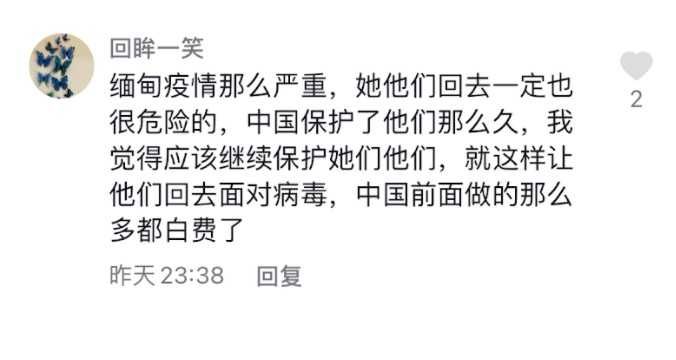
boundary
In addition to deporting Myanmar residents out of the country, Ruili also did everything in the city to prevent anyone from entering.
Since Ruili closed its doors in 2020, in order to strictly prevent the epidemic from being imported from abroad, the local government has repeatedly emphasized "defending the soil and securing the border". On the sixth day of the "3.29" epidemic, Yunnan Governor Wang Yubo went south to Ruili to supervise, and stood on the China-Myanmar border shouting the slogan "Resolutely guard the country and the frontier" . When it came to the "7.04" epidemic, the slogan became "the determination to guard the border, see death as home, and firmly guard the southwest gate of the motherland" .
Keeping the edge continuously invests a lot of manpower. At the beginning of the first round of the epidemic, Ruili set up 506 border closure and control points, and invested more than 3,900 people including public security, armed police, border guards, support cadres, and militiamen to guard the front line of the border 24 hours a day. By the second round of the epidemic, this number had nearly doubled, and CCTV reported that more than 7,000 cadres, militiamen and police were "strictly guarding the borders."
But this has not been able to "firmly block" the border. In September and October, 30 people were still caught sneaking across the border. On October 21, the "big inspection of hidden dangers in the border" found a large number of "secret doors, dark windows, dark passages and dark holes".
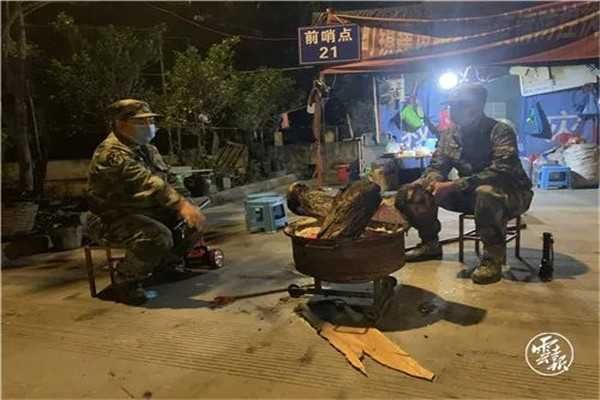
Wang Fang, who is familiar with the local situation, introduced to NGOCN that after the city was closed due to the epidemic, the smuggling groups were mainly telecom fraudsters, traders from China and Myanmar, and Burmese people fleeing the war and the epidemic.
Telecom fraud occurred in China around 2006, and it has been transferred to neighboring countries year by year. Among Southeast Asian countries, Myanmar is one of the two countries (the other is Brunei) that has not signed an extradition treaty and a mutual legal assistance treaty with China, and anti-government groups and the government have long been opposed to each other. A large number of telecommunications fraudsters came to the "extra-legal land" in northern Myanmar on their own initiative or under the condition of being deceived.
The Chinese government has stepped up its crackdown on telecom fraud syndicates in northern Myanmar this year. Zhao Kezhi, the Minister of Public Security, proposed when he inspected the border of Yunnan in May that "heavy punches, heavy hands, and heavy codes" should be used to curb the high incidence of telecommunication fraud crimes. Afterwards, Fujian, Jiangxi, Hunan, Sichuan and other places used methods such as canceling household registrations, freezing bank accounts of immediate family members, restricting children's education, and spraying permanent signs of "Crackdown on Telecom Fraud Crimes" at the residences of immediate family members to "persuade" the fraudsters to return. Those who surrender themselves and promise to surrender themselves will be given a lighter or exempted punishment.
Since the "missing persons" who are "suspected to sneak across the border" to commit wire fraud will be subject to the same punishment, many wire fraud officers who are unwilling to surrender themselves take the risk of smuggling back to China to prove that they are not the "missing persons" of wire fraud.
Wang Fang explained that a large number of fraudsters gathered in Lashio, the second largest city in Shan State, less than 100 kilometers away from Ruili. As a result, Ruili became their first choice for smuggling into the country, putting enormous pressure on local epidemic prevention.
The Ruili Municipal Government stated at a press conference on October 29 that the positive detection rate of overseas returnees continued to exceed 20%, and a total of 716 new crown positive patients have been detected since July.
In addition to telecommunication fraudsters, Sino-Myanmar traders, especially jadeite and jade traders, have also sneaked across the border. According to Wang Fang, from last year to the first half of this year, although Ruili closed the country's gates, the jewelry trading market and jadeite have not been out of stock for a long time. The jadeite merchants still use the convenience trails to allow border residents to smuggle jade on their bodies.
"As long as the market is open and goods are in circulation, there will be people who will take risks and smuggle to China to make money," Wang Fang said. The jade jewelry trading market opened intermittently after the first city closure, and was shut down by the government for a long time after the second city closure, resulting in a decrease in the number of smuggling merchants.
The third type of people who sneak across the border are Burmese people fleeing wars and epidemics. Wang Fang said that the military coup in Myanmar in February this year, the continuous military conflict in northern Myanmar, and the rapidly spreading epidemic forced many Myanmar border residents to flee to Ruili. Some Burmese border residents have relatives and friends in Ruili, and the locals help them and provide accommodation.
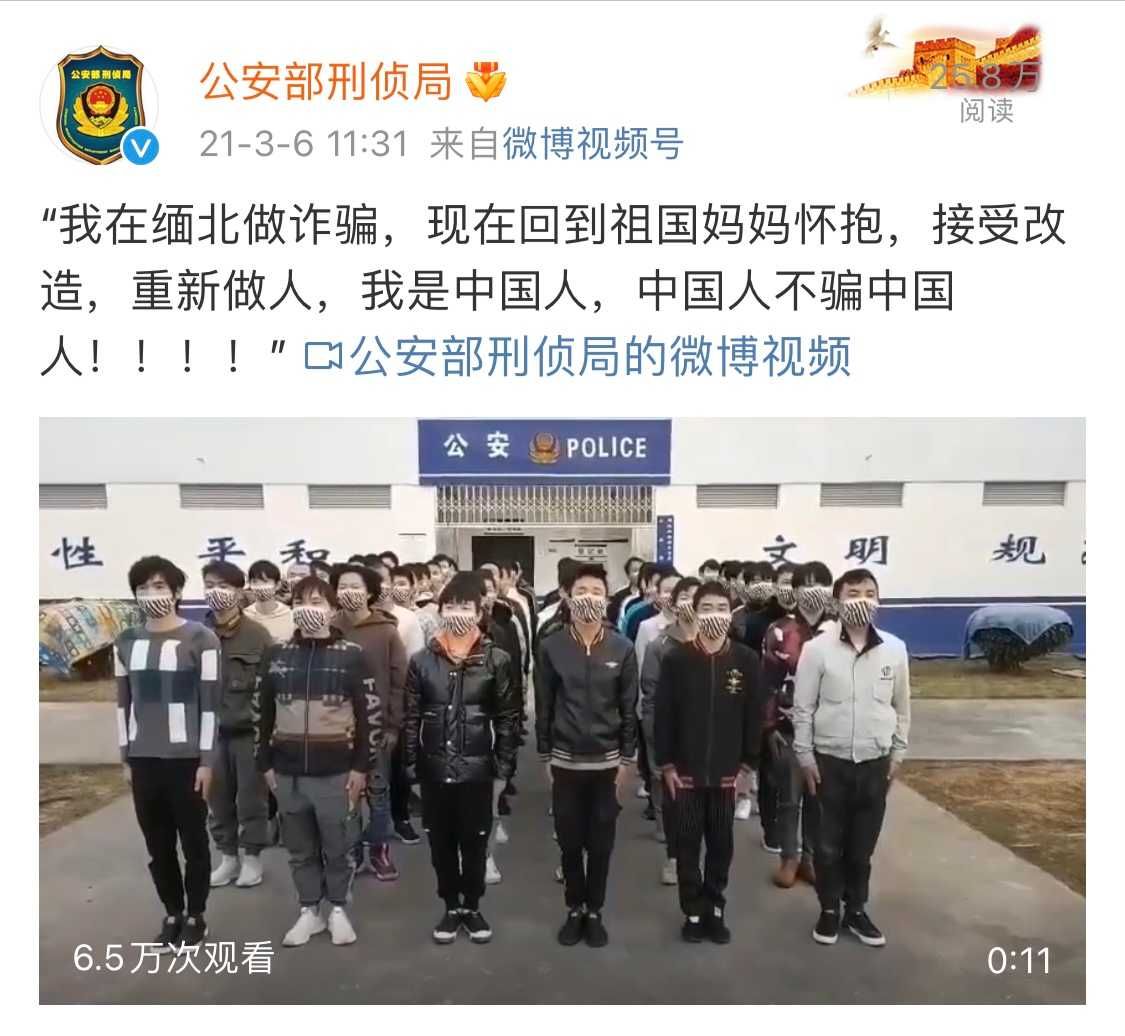
There are different kinds of people who sneak across the border, with different identities and different people who help them. However, different helpers have been uniformly labeled by the government as "smuggling" and severely punished "one size fits all".
The Ruili city government defines "smuggling" personnel as organizing transportation, guiding and leading the way, harbouring, sheltering, and condoning smugglers, and claiming that they are "coveting personal interests", which has led to the delay in clearing the city's epidemic situation, "destroying the overall situation of national epidemic prevention, and harming the country. Interests are turned a deaf ear and insensitive," and must be severely punished.
On June 24th, Ruili released the "Ten Unanimous" , and for "stealing and leading" personnel will "all be exposed and publicized to shock, all be strictly and strictly enforced, all policy subsidies will be canceled, all financial and bloodshed, and all will be listed as dishonesty. Personnel”, etc., including spraying the permanent signs of “smuggling and bringing illegal and shameful” at the residence of the person and his immediate family members, freezing the bank accounts of himself and his immediate family members, shutting down mobile phones and broadband, and prohibiting children from attending schools in urban areas and other punitive measures.
Wang Fang said that it is unreasonable and lacks humanistic care to confuse "helping fraudsters to smuggle" and "helping their relatives who have fled" to be severely punished. "If your cousin says he can't stay in Myanmar any longer and wants to come to your Ruili's house for two days, can you refuse?"
"We even held hands and surrounded Ruili in a circle, and we couldn't keep it," Wang Fang recounted the local statement. She believes that the order to "take strict precautions" is not in line with objective reality.
Different from the "high mountains and dense forests" in other borders of Yunnan, the Gaoligong Mountain in western Yunnan has turned into a low hill when it extends south to Ruili; the slow flow of the Ruili River and the accumulation of silt in the plains make Ruili and Myanmar lack. Bounded by natural barriers. Unmanaged convenience trails crisscross the streets, and narrow boundary rivers can be crossed by swimming. The 168-kilometer long border has brought great difficulties to defending the border.
The bigger difficulty comes from the blurred concept of "border" in the past hundred years of exchanges and integration between China and Myanmar border residents. According to Wang Fang, Burmese people knew that Shweli was a good business for more than a hundred years ago. In the 1980s and 1990s, they brought jadeite, ceramics, bamboo baskets, newspapers, clothes resold from Japan, and Burmese snacks to Ruili's "Myanmar Goods Street" to do business. They went early and returned late, and came back the next day.
Wang Fang said that at that time, many Burmese people did not have the concept of "Yunnan" and "China". They only knew Ruili and they could take a bus all the way north to Kunming. In the 1980s, border management procedures were still simple. A crossbar was a border checkpoint. It was not until 1992 that China began to improve border management measures, and border residents had the concept of "I come to Ruili to apply for a permit, this is another country".
Even so, the border does not separate the daily lives of border residents in the two places. Wang Fang introduced that her Burmese research subjects often said to her, "I will go to Muse and come back after a meal." Adjacent) and stamped, the border certificate will continue to take effect, just like eating. In addition, a large number of cross-border marriages have caused many families to be drawn on both ends of the border. "My daughter is married on the other side. I have to go." Wang Fang introduced the daily life of Myanmar residents she knew.
According to official data , Ruili has 20 Dabian administrative villages, 79 Dabian villager groups, and 68% of the city's population lives at the border. There is also a situation of "one village and two countries". The Chinese side is called Yinjing, the Myanmar side is called Yinjing. One side is called Mangxiu. The villagers of the two countries share a well. The border passes through the village, and there is a swing next to it. It swings into Myanmar and falls back to China.
"The concept of 'border' is strictly imagined by people who do not live on the border, but there is no such concept in the daily life of border residents," Wang Fang said. "Border trade and immigration, openness and tolerance have enabled the city of Ruili to be Running and alive.”
However, the urban characteristics of Ruili have formed a fundamental contradiction with the requirements of epidemic prevention and control. "Ruili is an open and mobile city of commerce and trade. It cannot 'guard the country's gates' because the country's gates here have always been open. It cannot 'guard the soil and secure its borders' because it is not a defensive fortress in itself." Wang Fang said.
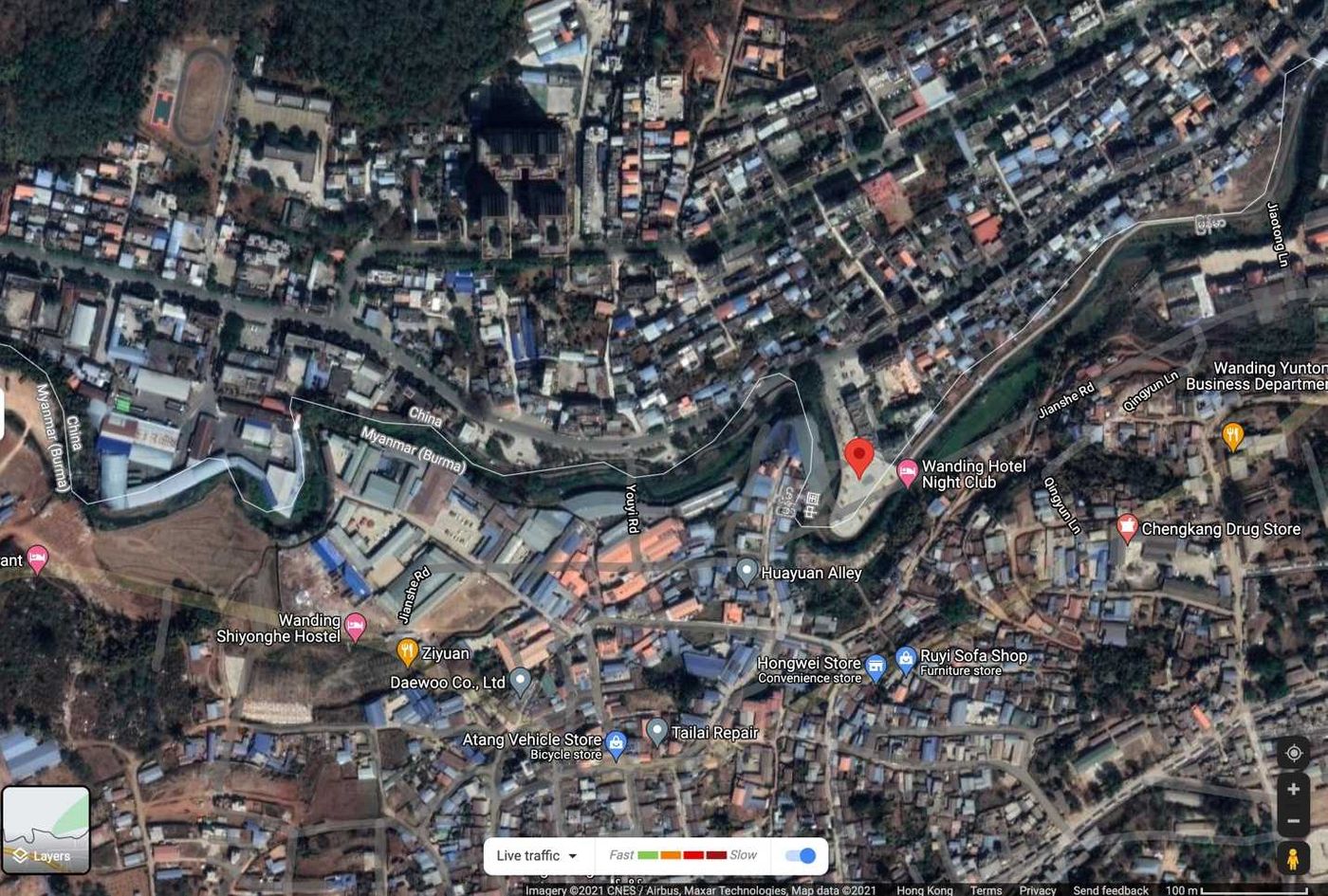
Plus code
Ruili officially admitted that the long and flat border and ethnic integration have brought objective difficulties to epidemic prevention and control. On July 8, Mayor Shang Labian publicly explained that Ruili's geography and culture "formed a natural favorable condition for the cross-border spread of the epidemic. The prevention and control of our borders is becoming more and more difficult, and the pressure is also increasing sharply."
However, under the country's political task of "guarding the southwest gate of the motherland", Ruili still took more stringent measures to "compact the responsibility for epidemic prevention" to "make up for shortcomings, plug loopholes, and resolutely guard against death." In addition to the repatriation of Burmese residents and the crackdown on "smuggling", forced relocation of residents in border villages, strict household inspections, large-scale centralized isolation, long-term home isolation in the city, and multiple city closures.
In September and October of this year, Ruili launched the "Special Action to Combat Border-related Crimes" , "Border Hidden Hazard Investigation" and "Eight Prohibitions" in the border warning area, moved 213 border residents and 852 people, and demolished "hidden danger houses" In Building 77, residents are strictly prohibited from handing over objects to the outside world, and it is strictly prohibited to open doors and windows on the outside of the residence, and the doors and windows that have been opened must be completely blocked.
Ms. Xiong lives in Wanding Township, a town northeast of Ruili across the Wanding River from Pang Hseng in Myanmar's Shan State. Ms. Xiong is 47 years old and has been in Wanding from Sichuan for 17 years. She runs a barber shop on the south side of Democracy Street. Wanjiang Road and Minzhu Street are one of the main roads of Wanding Town, and the town extends from southwest to east along the road. The shops and houses in the south of the road are backed by the brown-yellow Wanding River, and Myanmar is on the other side of more than ten meters.
In late October, she received a phone call from the grid staff and learned that the businesses and residents on the south side of Wanjiang Road and Minzhu Street were to move out temporarily, with a monthly subsidy of 600 yuan to “rely on relatives and friends” or “rent on their own.” , the time is tentatively set for six months.
"I don't want to move. If I move, the store will be gone. How can I have the money to reopen the store? Can I rely on the 600 yuan?" Ms. Xiong said.
However, the government's push for the relocation was quickly halted as residents resisted the clashes. A number of Wanding residents told NGOCN that some residents resisted the relocation, and the government sent people to weld the gate of the community to death to force a compromise, which led to even greater conflicts. Many people took to the streets to protest. Those who leave move away, and those who do not move stay.
NGOCN was unable to independently verify the conflict. However, according to "Phoenix Weekly" citing a "Notice on the Transfer of Cadres to Wanding to Support Work" issued by Ruili City's New Coronary Pneumonia Epidemic Prevention and Control Work Headquarters circulating on the Internet, it shows that there is a possibility that the war on the overseas side of Wanding will continue to occur. Large, out of the need to avoid war, enterprises and residents in the south of Wanjiang Road in Wanding Town will temporarily move out. But after the mobilization meeting was held, "some residents were very resistant, and it was difficult to advance various tasks."
The war mentioned in the government notice on the Internet is a fierce armed conflict in the area of Monekoe, a town south of Wanding, in northern Myanmar at the end of August, which lasted until October. According to Frontier Myanmar, the coalition and defense forces have been at war since 1995, with the largest conflict in 2017, when more than 20,000 civilians were displaced.
Wanding and the guns on the other side have been together for decades. "I'm used to it," Ms. Xiong said.
At a press conference on October 29, the Ruili government publicly explained the reason for the relocation of the south side of the main road in Wanding, saying that it was "in a high-risk area of imported epidemics", but did not mention the war in northern Myanmar. The city government also stated that it would subsidize 600 yuan per person per month, and promised that the relocation "will not be used for any commercial development. After the border is safe and stable, residents can go home and resume normal production and life."
Ms. Xiong did not understand why only the residents on the south side of the road were relocated due to the war in northern Myanmar or the epidemic. "If you talk about war, the north side of the road is on a slope, and stray bullets are more likely to fall there; if you talk about the epidemic, the virus will not survive if the road is separated? And (the government) said that we can move anywhere, even across the road. What difference can this make in the past? If Wanding wants to move, move all, if not, don't move, what effect can one road play?" She asked repeatedly in an interview.
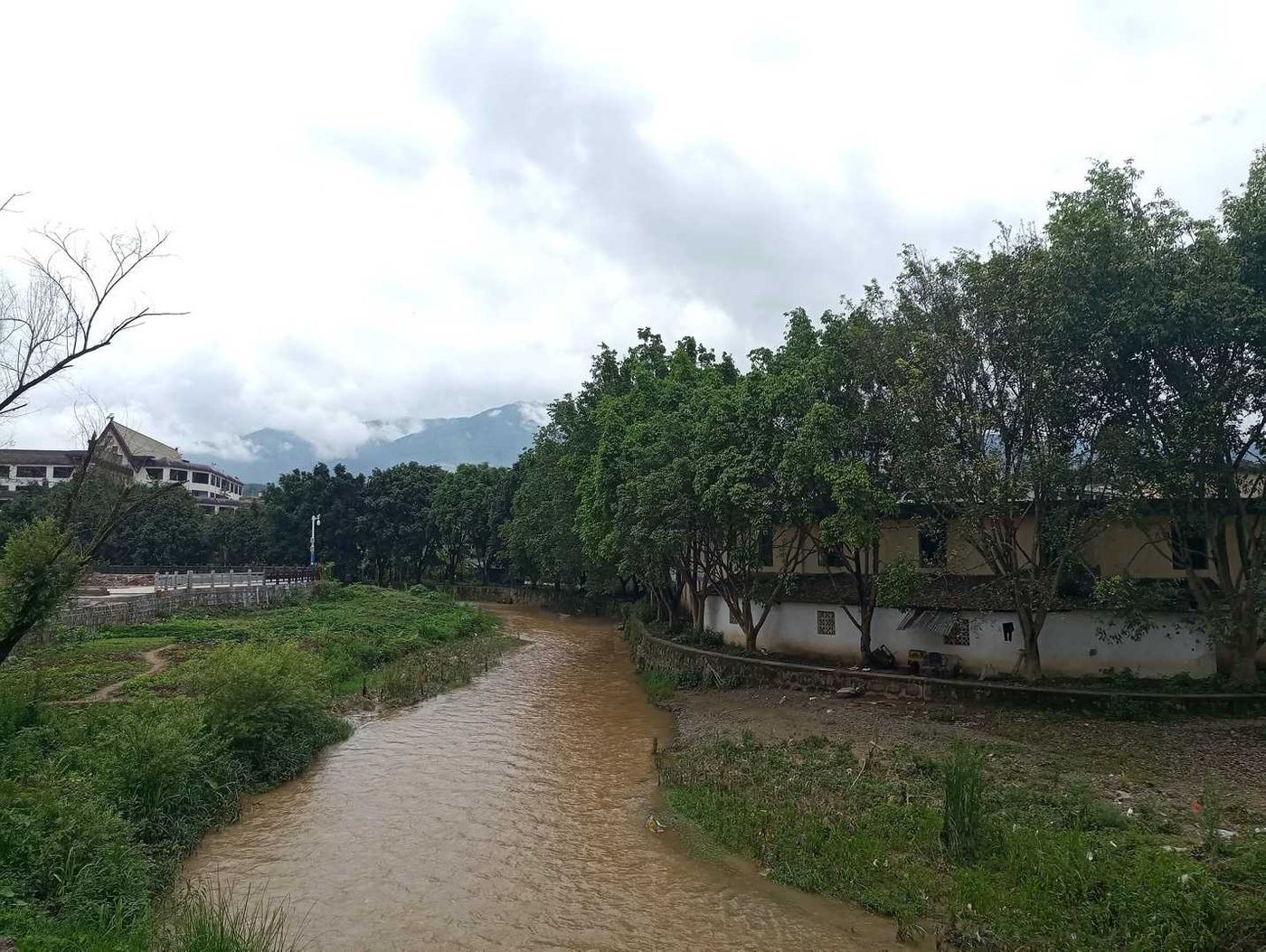
While waiting between the uncertainty of moving and not moving, Ms. Xiong was informed by the grid staff that she was a close contact of the new crown case on October 25. In the room, you need to pay 50 yuan per day for meals.
Ms. Xiong said that the cold water at the isolation point was clear and cloudy. When it was clear, brush your teeth and wash your face, and when it was cloudy, use a bottle to flush the toilet. There was no running hot water, so she only wiped her body with a wet towel, and did not dare to take a cold shower for fear of catching a cold.
"I hope the party and the Yunnan provincial government will take care of us. We ordinary people can't stand this repeated torture," Ms. Xiong said. "We want to open a store and live. Now we will be closed and quarantined, and we will be relocated. To be honest, there is no heart disease at all. To get a heart attack."
"There is no income, the rent will not be reduced, and the isolation fee will be paid. Do you think it is difficult?" she asked.
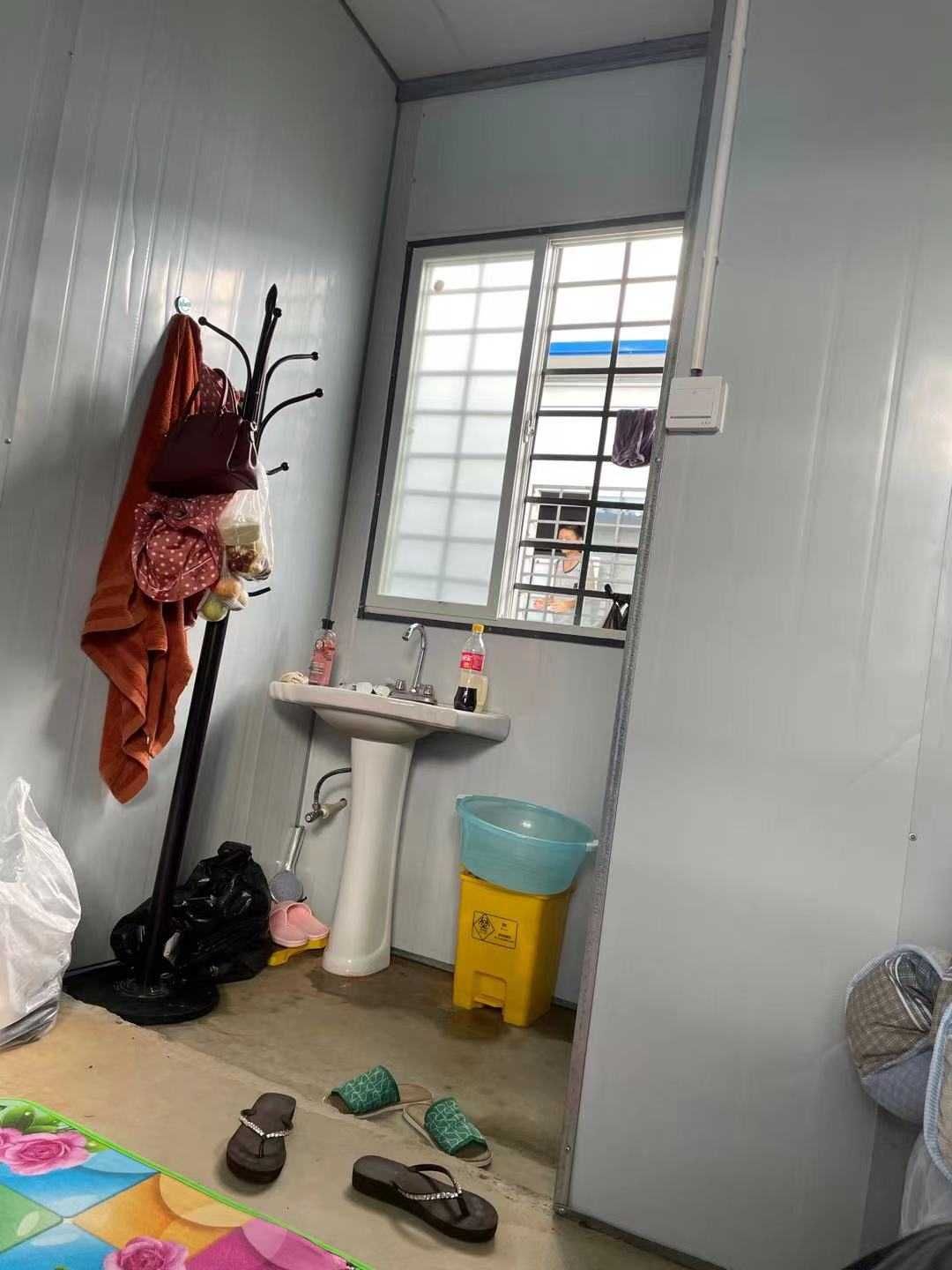
Also hit by the epidemic are residents of the urban area of Ruili. NGOCN sorted out the government's public announcement on epidemic prevention since March 29. According to statistics, the main urban area of Ruili has experienced 4 rounds of city closures, 67 days of home isolation, and 11 rounds of nucleic acid testing for all staff. However, according to the statements of many interviewees and other media reports , there are still a large number of nucleic acid tests for all employees and key groups that have not been released to public channels such as the municipal government's official website and WeChat official account.
"Let's talk about it dozens of times, and I have to take nucleic acid tests every three or five times. Whether there is an epidemic or not, it is said to be a normalized test," Zhao Rui (pseudonym), a resident of the urban area, told NGOCN, "In the end, everyone was numb, and the walking dead lined up. Testing, especially exhausting."
His life has also been affected by the epidemic and the lockdown. Zhao Rui said that on the night of his grandmother's death on July 9, he caught up with Ruili to announce the second closure of the city. As a result, he failed to send his grandmother's ashes up the mountain for burial. He, who just got married last year, did not have a dinner party because of the epidemic. The child was born in August this year, but the epidemic is not over yet.
"Everyone is exhausted physically and mentally by the epidemic, and they are very resentful because of the epidemic prevention." Zhao Rui said. "The central government's policy is originally a needle, but when it is implemented on the head of the common people, it becomes a hammer."
What ignited the emotions of Ruili people was the brutal epidemic prevention video shot by the residents in October. In the video, the epidemic release personnel threatened the residents with handcuffs, saying that if they did not go to centralized isolation, they would be detained in accordance with the "Law on the Prevention and Control of Infectious Diseases" and the "Public Security Management Punishment Law", and even some residents' security doors were smashed by epidemic prevention personnel.
Public health scholar Huang Yanzhong said, "China's top-down 'movement-style' epidemic prevention has broken down the top-level political tasks layer by layer. A case will not be allowed to arise."
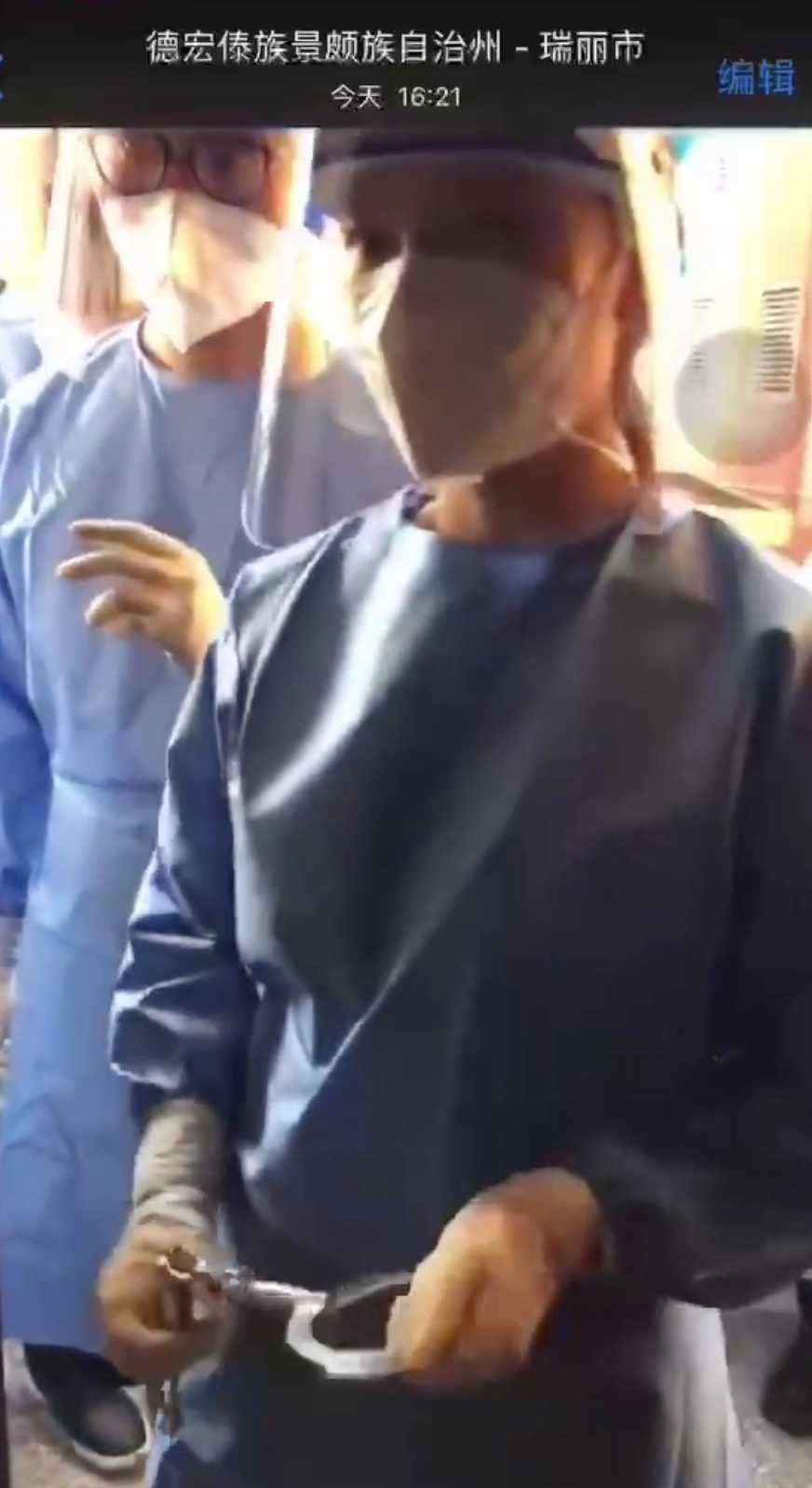
On the other hand, political missions are also escalating. On August 9, the Yunnan provincial government proposed for the first time that "Ruili should speed up the clearing" , after Ruili was hovering between cases and no cases for nearly a month. Half a month later, the slogan of Dehong Prefecture was upgraded to "clearing is a military order" , and Ruili's epidemic prevention and control has entered a "decisive battle stage".
For this upgrade, Huang Yanzhong believes that "in fact, the effect of epidemic prevention has diminished marginally." But even so, the local government and the grassroots will continue to implement it, "at least it can show that the following is responding to the call to do things, (otherwise) if something really happens, maybe evade accountability.”
The accountability for epidemic prevention mentioned by Huang Yanzhong was also staged in Ruili, and the secretary of the municipal party committee was replaced three times within a year.
On April 8, on the 10th day after the first round of the epidemic in Ruili, the Yunnan Provincial Commission for Discipline Inspection and Supervision informed that Gong Yunzun, secretary of the Municipal Party Committee, was responsible for the main leadership of the "3.29" epidemic. The overall situation of epidemic prevention and control” was dismissed from the party and government positions.
The next day, Zhai Yulong took over as secretary of the Ruili Municipal Party Committee. He stated at the cadre meeting , "I will definitely take the lead in talking about politics", and said that he will "change the style", "fill up the shortcomings and loopholes", and "make epidemic prevention and control and border control as the top priority at present." . In May, Zhai Yulong was recommended by the Yunnan Provincial Party Committee as "Secretary of China's Top 100 County Party Committees".
However, the "7.04" epidemic followed one after another during his tenure. On September 2, Zhai Yulong no longer served as secretary of the municipal party committee , and Mao Xiao, the former secretary of the municipal party committee of Mangshi, adjacent to Ruili, took over the position.
NGOCN interviews found that Ruili residents generally expressed dissatisfaction with the frequent replacement of municipal party secretaries, complaining that one term of leadership is not as good as one term, and the epidemic prevention policy is getting stricter and stricter, but the epidemic still remains unresolved.
During Zhai Yulong's tenure, Ruili City implemented "ten uniforms" of severe punishment for "smuggling" personnel, and the city achieved a two-month "zero" at the end of April. During the tenure of Mao Xiao, who took over, Ruili City increased the "special action against border-related crimes" and "eight prohibitions" for border epidemic prevention, and announced the new crown infection situation of people who surrendered to fraudulent charges on the official website of the city government for one month. The "zero" period shall not exceed 11 days.
Huang Yanzhong analyzed that the new leaders will come with the political task of "clearing zero" and will definitely increase the implementation of epidemic prevention. The second leader did not achieve zero, and the third leader will only implement more stringent methods. "They don't know enough about Ruili's unique social and ethnic culture, and they lack emotion for the city. Some of the policies they implement may be separated from the actual local situation to a certain extent." He further explained.
More importantly, "the 'one-size-fits-all' 'clearing' policy is objectively not suitable for Ruili, but the Chinese government does not accept 'coexistence with the virus'," Huang Yanzhong said. However, "the residents of Ruili may want to normalize epidemic prevention. After all, shops have to open, and everyone has to make money and live."
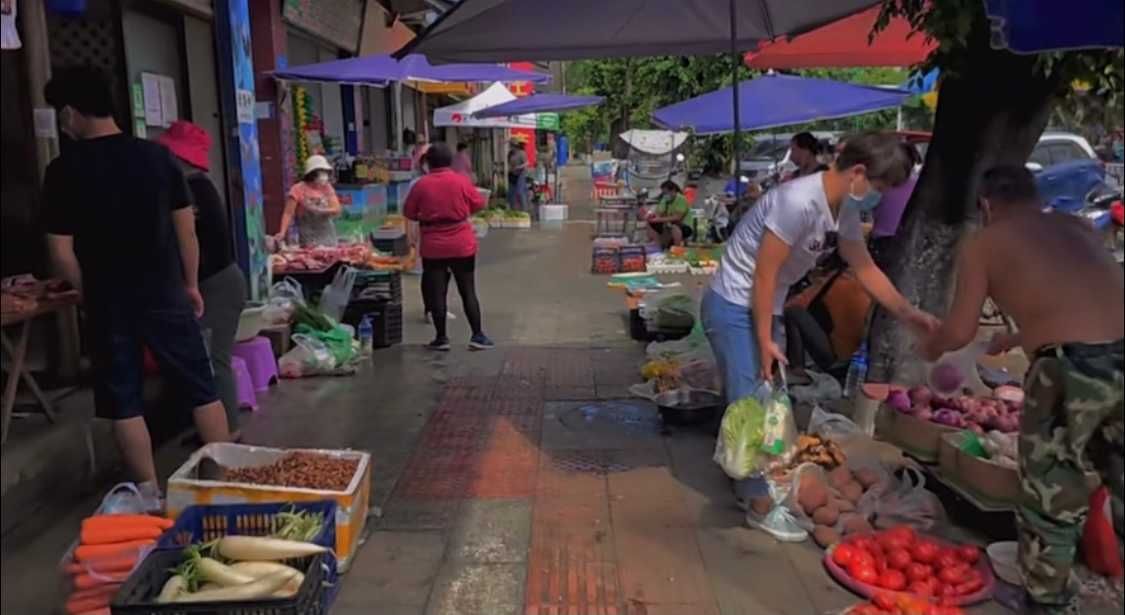
silence
For half a year, the people of Ruili have been trapped in the isolation of the city, and the city's economy has also come to a standstill. The once prosperous border trade town was lonely and lonely, and it became an island of information. It never appeared in the national mainstream media and the public's field of vision until October 28, when the former deputy mayor Dai Rongli wrote an article "Ruili Needs the Care of the Motherland" It caused an uproar on social networks.
Dai Rongli wrote in the article: "The common people have exhausted what they need to maintain their lives in the torture again and again"; "The stretched finances, the tossing of people and horses, and the arduous responsibility of protecting the country's gates make this small town unbearable. its heavy". He believes that Ruili "needs strong military support for national defense", "it is very urgent to resume production and necessary operations", and "take into account the overall situation and local aspects, people's livelihood and all aspects of management and control." He called at the end of the article, "Save this heroic city!"
The earnest article was immediately followed by an official rebuttal. On the same day, Ruili Mayor Shang Labian told the media , "(Ruili) does not need (help) for the time being," and said that Dai Rongli "used information from four or five years ago." In addition, Mao Xiao, secretary of the Ruili Municipal Party Committee, told the media that Ruili "receives relevant procedures and approvals to receive assistance. At present, the higher authorities have given a lot of support and will report the real situation to the higher authorities."
The next day, Dai Rongli wrote another article and said: "If you think that I have other intentions in publishing the article, please read my article and then make a statement and criticize; if you want to prevent me from publishing the corresponding article in various names, please do not open Respect!!"
Dai Rongli's remarks are like an outbreak of the Ruili epidemic. As early as two days before he posted the article, the Weibo related to the Ruili epidemic that was pressed finally attracted attention in the public opinion space. NGOCN observed that many bloggers claimed that Ruili was locked down for 7 months, subjected to forced centralized isolation, brutal epidemic prevention, and unsustainable life, and asked the whole country for help. These posts rushed to the hot search, then fell off, and were then topped by more and more users and big V, and so on, until Dai Rongli's article attracted official attention.
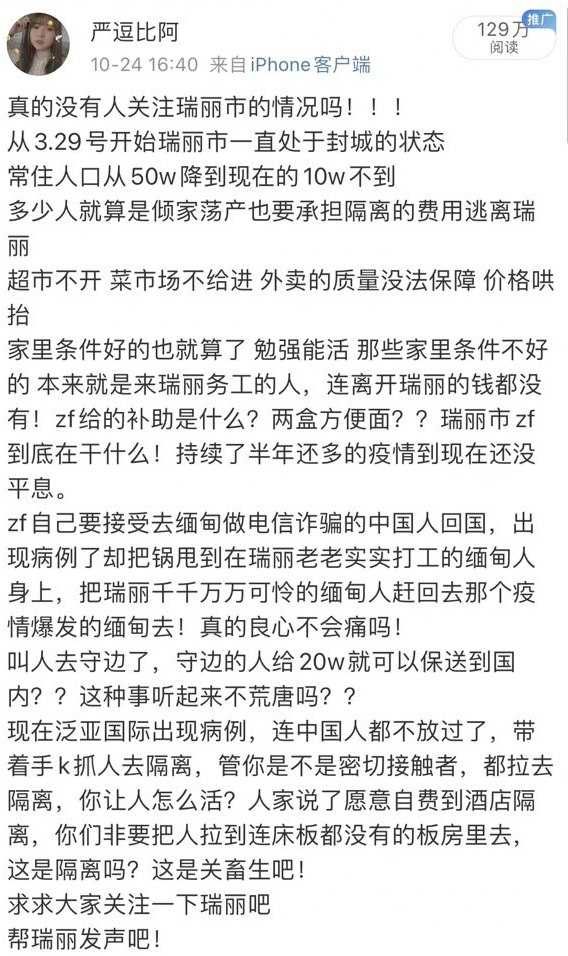
Several interviewees confirmed to NGOCN that grid workers and government staff had asked them to delete “negative information” about the Ruili epidemic, including pictures, texts and videos, and even made special conversation. "But it's not enough if you don't talk. Our life is too sad. The whole city is full of complaints. No one wants to see Ruili become like this." A resident told NGOCN.
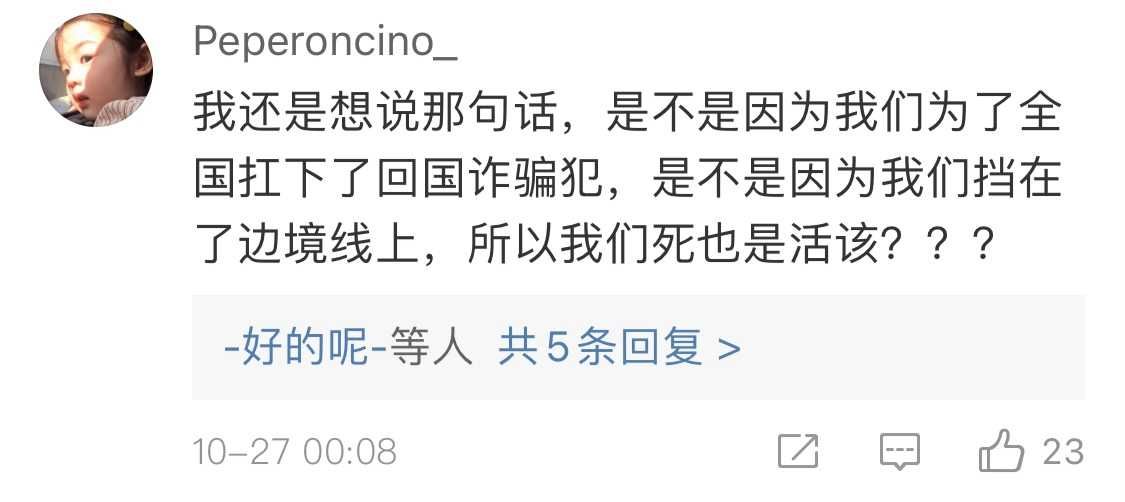
On July 5, the second day of the second round of the epidemic in Ruili, the municipal government issued the "Proposal to the Netizens in Ruili City" , requiring citizens to "not repost QQ, WeChat group, Moments, Douyin, Kuaishou and other networks at will. On the platform, there are no screenshots, videos, or audio information from authoritative and formal sources”; “do not trust, blindly follow, publish, disseminate, or comment on information that points to unknown sources”; and “consciously maintain the Consistently, strengthen the sense of political responsibility to the party and the country.”
At the special meeting on social conditions and public opinion held on October 27, the Ruili Municipal Government acknowledged that "recent public opinions have concentratedly reflected the difficulties in the production and life of the masses, and most of the masses' appeals are objective and reasonable, fully exposing the problems and deficiencies in the work of ensuring people's livelihood. "But he went on to say, "Strictly prevent the use of public opinion and false information to maliciously incite and disrupt social order, strengthen public opinion research and early warning, and severely crack down on relevant illegal acts in accordance with the law", saying "We must attach great importance to community grid work, Solve problems at the grassroots level,” and set up a “public opinion management and control class” involving the Propaganda Department, Public Security Bureau, Civil Affairs Bureau, Letters and Calls Bureau and other departments.
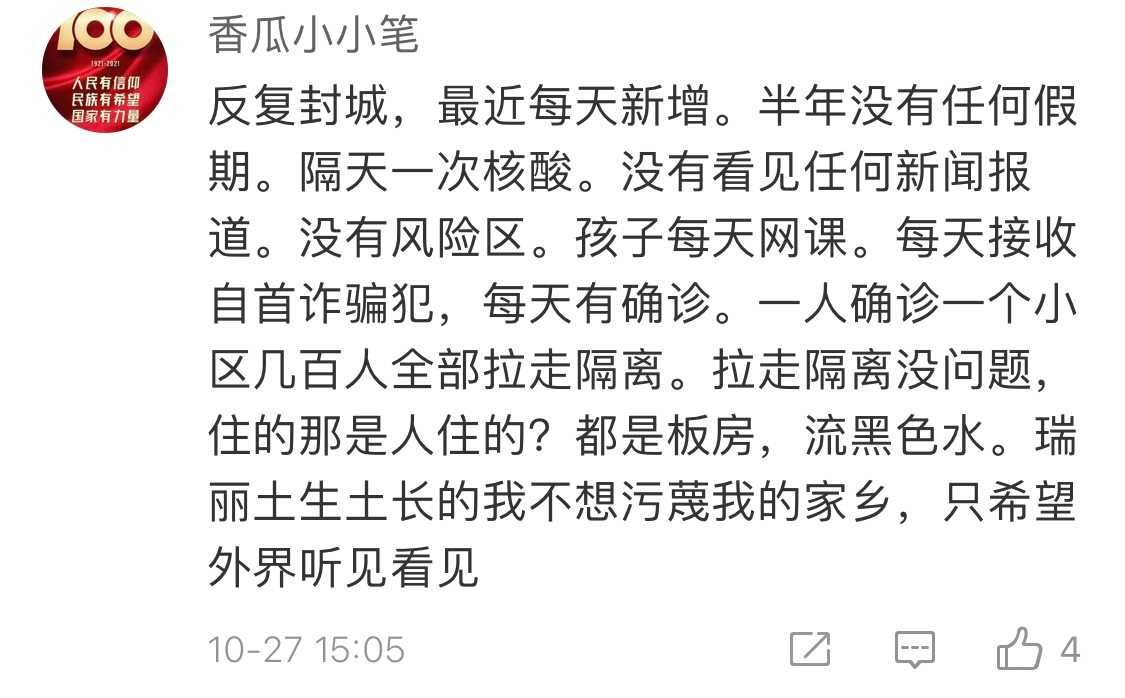
At the same time as "public opinion control", the Ruili Municipal Government reconvened a press conference after a lapse of nearly four months. The report stated that during the epidemic, Ruili City " always attached great importance to people's livelihood security ", and said " to fight the epidemic and maintain stability as a The overriding political task at the moment ".
At the press conference, the Ruili Municipal Government said that it had "conscientiously implemented" the "six stability and six guarantees" work released three months ago, and distributed more than 60.62 million yuan in relief funds to 87,000 people in need (no income for three consecutive months and cannot be covered by social security). ; Subsidy 1,000 yuan per person for eight categories of key personnel (residents of border-controlled villages, extremely poor and impoverished households, the elderly and left-behind children, the disabled, families with serious illnesses, and laid-off workers in difficulty, etc.), with a total of 68.78 million yuan in funds .
In addition, Ruili issued " eight measures " on November 4. For the people in the border control management area, each person will be subsidized 1,000 yuan per year; those who are transferred and evacuated from the border buffer zone will be subsidized 600 yuan per person per year; unemployment benefits, Temporary living allowances for migrant workers are increased by 50%; temporary urban and rural public welfare jobs are developed, and resettlement workers are given a monthly subsidy of 800-1,500 yuan; close and sub-close contacts in centralized isolation are exempted from accommodation and 50 yuan per day for food.
However, the one-time subsidy measures failed to bridge the long-term shutdown of production and life. A respondent who lives in Wanding told NGOCN that he received a subsidy of 1,000 yuan for the closure and control of Dabian villages in September, but the half-year lockdown cut off his source of income.
In response to the accusation of "excessive closure of the city", Ruili City simplified its isolation policy for leaving Switzerland on November 1, canceling the previous restrictions on leaving Switzerland "due to illness, bereavement, or business", and "half-unblocked" Ruili. Residents can choose a hotel or a board room according to economic conditions, the latter free of charge. If life is really difficult, you can also apply for a fee waiver for meals and nucleic acid testing.
Zhao Rui, who lives in the main urban area of Ruili, immediately went to the hotel to quarantine for 7 days at his own expense after the policy was released. After spending 1,500 yuan, he left Ruili and went to Guangzhou. Ms. Xiong, who lives in Wanding, is still staying in Ruili. "I have been here for 17 years. I think Ruili is very good. I want to stay."
The epidemic has brought a heavier blow to Bian Yanmei's life. After the epidemic, her monthly income of 4,500 yuan has shrunk by two-thirds. Now, "it is estimated that it is difficult to earn 1,000 yuan a month." Fortunately, after her brother graduated from a college in Yunnan, he returned to Lashio to teach Chinese classes. She didn't have to pay for the family for the time being.
The livelihood protection measures introduced by the government cannot benefit her. So far, she has not received any government subsidies, "because I am not Chinese," she said. NGOCN reviewed all the policies of Ruili City for benefiting the people, and they are only for Chinese citizens.
She wanted to go to Baoshan City to reunite with her one-and-a-half-year-old daughter, but she was also unable to apply for Li Rui because she did not have an official marriage certificate. I can only call my mother-in-law in Baoshan two or three times a day to see how her daughter looks like. Now, she posts her daughter's video in the circle of friends every day or two.
She is looking forward to the day when Ruili is unblocked. "I want to go back to Myanmar first. My brother and sister haven't seen each other for a year and a half, and they miss me all day. Then I immediately apply for my passport and marriage certificate, so that I can go to see my daughter." Bian Yanmei planned Ruili's solution. days after closure.
In mid-November, the National Health and Construction Commission proposed a "dynamic clearing" strategy, saying that it does not pursue "zero infection", but maximizes early detection, early treatment, and early disposal to prevent the continued spread of the epidemic in the community. With the loosening of the political task of "clearing" and the accountability of public opinion for the poor guarantee of people's livelihood, Ruili City has turned to continue to emphasize that "the epidemic situation is not spread, the dynamic is cleared quickly, and the people's livelihood is guaranteed ."
At present, Ruili has not yet been fully unblocked, and people's livelihood has improved, but the livelihood difficulties of some residents have not been completely resolved. Huang Yanzhong said that Ruili's "dead situation" was caused by the structural contradictions in the national epidemic prevention, "not to say that it can be solved by sending some money and reinforcing some medical care."
"If we don't change our mentality (to the new crown), we will still talk about the discoloration of the new crown and implement various types of 'zero' policies. Small cities like Ruili can only sacrifice, which is unfair to the locals." Huang Yanzhong Finally said.
Note: Bian Yanmei provided NGOCN with her real name, but in order to protect her safety, NGOCN decided to use a pseudonym to describe the interviewee; since Wang Fang is currently engaged in academic research in Yunnan, NGOCN decided to use a pseudonym to present the scholar’s views; An interviewee asked that Zhao Rui be a pseudonym.
Like my work?
Don't forget to support or like, so I know you are with me..
Comment…